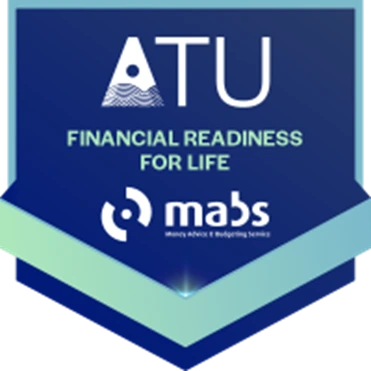Courses

Financial Support

Individuals wishing to participate in Higher Education have a number of options in relation to financial supports available to them. Below is an overview of the financial supports available.
Student Grant Scheme – “SUSI”
The student grant is the main source of financial help available from the Irish State for students in full-time higher education undergraduate courses.
Support is available to eligible students in most colleges in Ireland as well as eligible Irish students in many colleges in Northern Ireland, the UK and other EU States.
For details on the Student Grant Scheme and other important information see the Student Universal Support Ireland (SUSI) website.
Other sources of information on student finance include:
1916 Bursary
The purpose of the 1916 Bursary is to encourage participation and success by students who are most socio-economically disadvantaged and who are from groups most under-represented in higher education. 1916 Bursary
Back to Education Allowance
If you are unemployed, parenting alone or have a disability and are getting certain payments from the Department of Social Protection, you may take part in a second or third level education course and get a Back to Education Allowance (BTEA).
It is important to note that you cannot get the BTEA and the maintenance component of a student grant together.
In order to get the BTEA when going to college, you must accept your place on a full-time course, and then notify the Department of Social Protection by filling out the BTEA application form. Further information can be found at Back to Education Allowance (BTEA) (citizensinformation.ie)
UK Student Loan Grant Scheme
The financial help available to a UK undergraduate student depends on:
- Which devolved authority they apply to for financial support
- Their course
- Where they live while studying
- Their individual circumstances
Types of help for new full-time undergraduate higher education students include:
- Tuition Fee Loans to cover the full cost of tuition fees
- Maintenance Loans to cover living costs
- Grants to cover living costs
- Bursaries and scholarships from universities and colleges
- Students can also get extra support if they have children or adult dependents, or a disability or a specific learning difficulty
For more information see www.studentfinanceni.co.uk
Other Financial Assistance
Laptop Loan Scheme
ATU Laptop Scheme is part of the package of COVID supports for higher and further education institutions, the Department of Further and Higher Education, Research, Innovation and Science has allocated funding to support disadvantaged students in the higher education sector in accessing ICT devices.
To be eligible for this scheme: Students must be in receipt of a SUSI grant or a means-tested Social Welfare payment. There is a limited number of laptops and priority will be given to students of target groups identified under the National Plan for Equity of Access to Higher education, and on a first come- first served basis.
Full-time and part-time students (both undergraduate and postgraduate) are eligible to apply under this scheme. The Grant covers both incoming first year students and returning students. International, non-EU fee-paying students would not be considered eligible for support under this scheme.
Who Is Eligible
To be eligible for this scheme: Students must be in receipt of a SUSI grant or a means-tested Social welfare payment. Priority will be given to students of target groups identified under the National Plan for Equity of Access to Higher education 2015-2021
- Students disadvantaged by socio-economic barriers
- First-time mature students
- Students with disabilities
- Part-time/flexible learning students
- Students who hold further education qualifications
- Students who are members of the Traveller and Roma communities
- Students who are lone parents
- Students who are members of ethnic minorities
Due to the limited number of laptops, we will be operating on a first come, first served basis based on eligibility until all laptops have been allocated.
How to Apply
To apply you must be a registered student. Registered students can click on link below where you will find further information and link to the application form.
Student Assistance Fund (SAF) FAQs
WHAT IS THE STUDENT ASSISTANCE FUND?
The Student Assistance Fund (SAF)provides financial support to full- or part-time students who are experiencing financial difficulties while attending higher education.
To be eligible, you must be currently registered on a full-time or part-time higher education award of one year’s duration or more that leads to an undergraduate or postgraduate qualification (NFQ level 6-10). Please note – applications are means tested. The following students are not eligible
- Incoming ERASMUS students
- Students with a previous higher education qualification at the same NFQ level or who are undertaking a second programme at the same level. However, in extreme circumstances such students may be considered on a case-by-case basis.
- International/non-EU fee paying students
WHAT CAN I USE IT FOR?
- books and other class materials
- rent, heating, lighting bills and other utility bills e.g. data plans
- food
- essential travel
- childcare costs
- medical costs
- family difficulties e.g. bereavement
What costs are not eligible under the Fund?
Funding is not available to assist students with the costs of tuition fees, registration fees, student loans or any costs that are borne by the Higher Education Institute.
How to Apply
To apply you must be a registered student. Registered students can click on link below where you will find further information and link to the application form.
For any queries you may have, please contact the SAF officer on your campus.
| Donegal Saf.donegal@atu.ie | Galway-Mayo Saf.galwaymayo@atu.ie |
| Sligo Saf.sligo@atu.ie | St Angelas Saf.stangelas@atu.ie |
Scholarships
ATU offers a wide range of scholarships for both undergraduate and postgraduate students. Scholarships allow our students to focus on achieving excellence in their field while also allowing them to build valuable relationships and enhance their career prospects.
ATU scholarships reward excellence and encourage outstanding performance in a variety of areas. More information on ATU Scholarships can be found at Scholarships – Atlantic Technological University
Financial Readiness for Life Free Online Course
The Financial Readiness for Life online course, helps students develop practical financial skills to support then through college and into future employment.
The content and activities were created by the Access and Participation Office in conjunction with the Money Advice and Budgeting Skills (MABS).
This is a free online course aims to help students develop practical financial life skills to support them to prepare for college, through college and into future employment.

The course is 90 to 120 minutes long. Once complete, you will receive a digital badge that can be shared across your social media platforms
The course can be accessed on your mobile phone.
There are five learning outcomes:
- Needs, wants and sustainable spending.
- Money management.
- Borrowing and long-term financial health.
- Risks and scams.
- Tackling debt.
Here is a link to a short video Financial Readiness Demo on Vimeo giving you an overview of the course.

